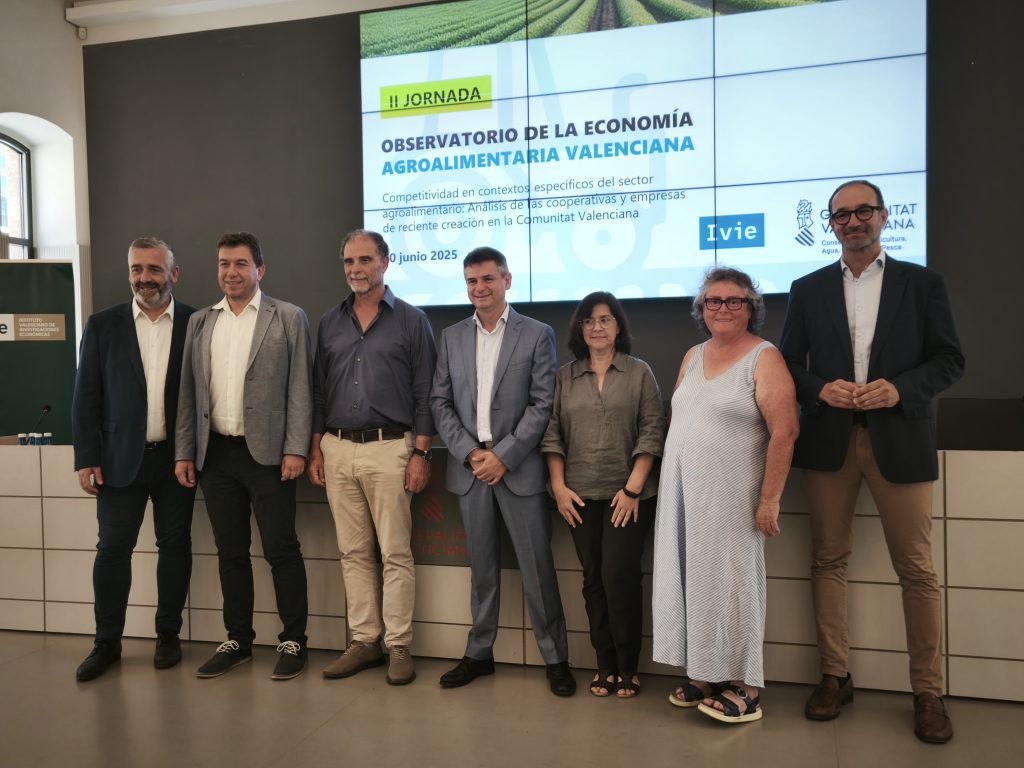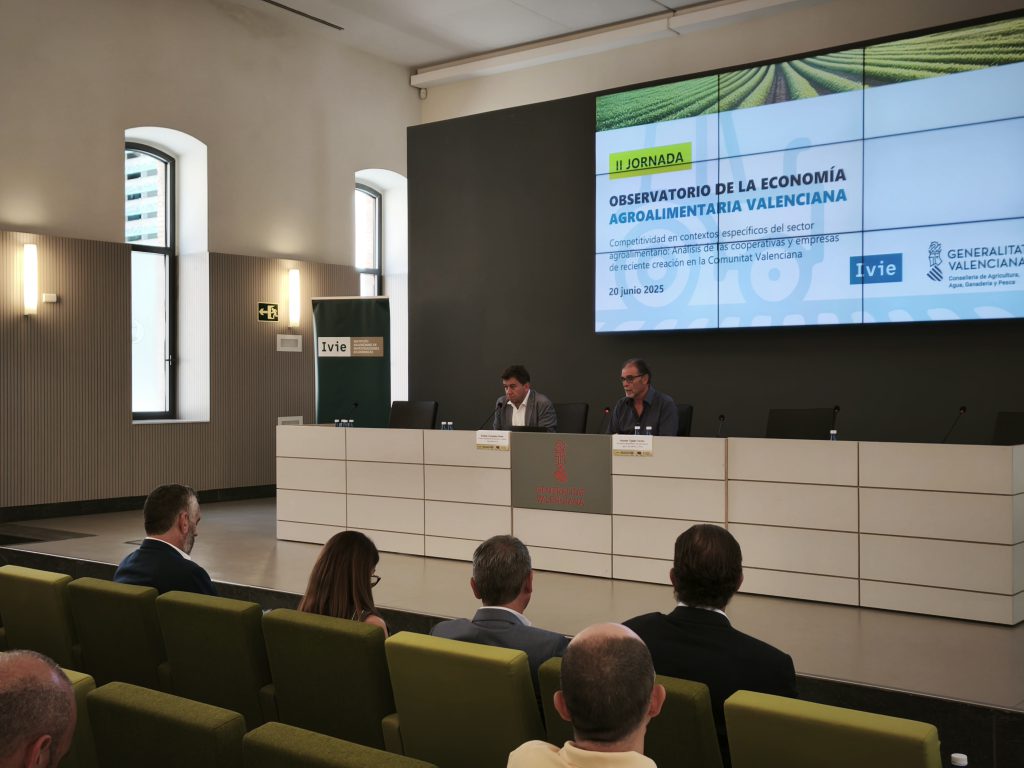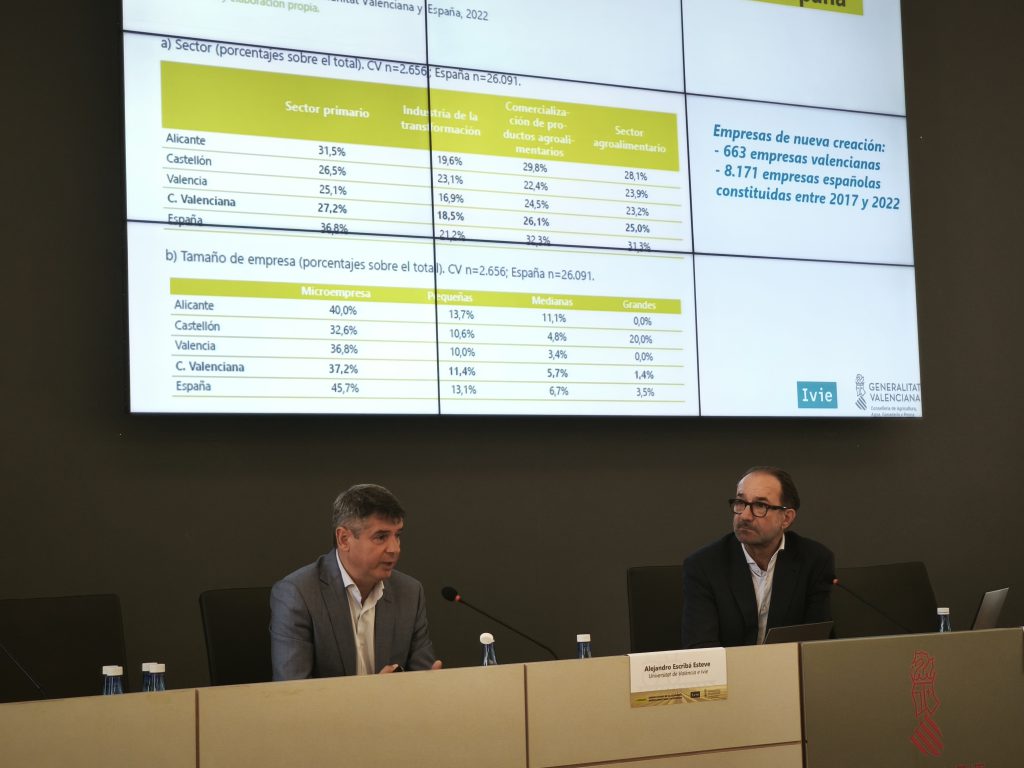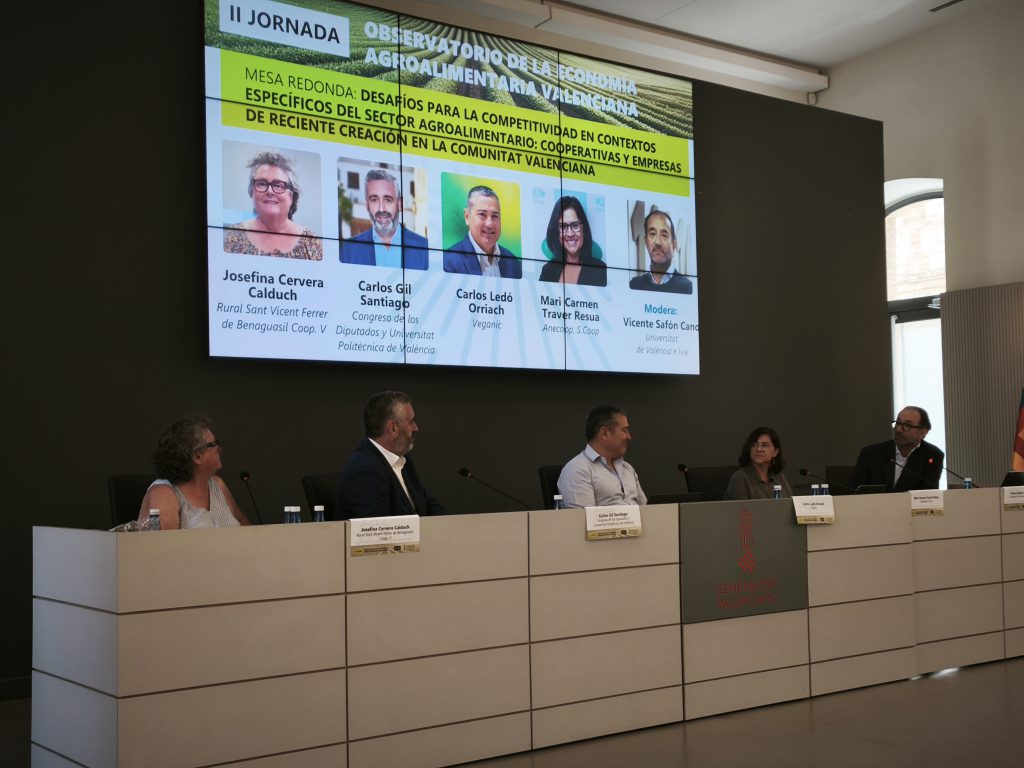Esta web utiliza cookies para que podamos ofrecerte la mejor experiencia de usuario posible. La información de las cookies se almacena en tu navegador y realiza funciones tales como reconocerte cuando vuelves a nuestra web o ayudar a nuestro equipo a comprender qué secciones de la web encuentras más interesantes y útiles.
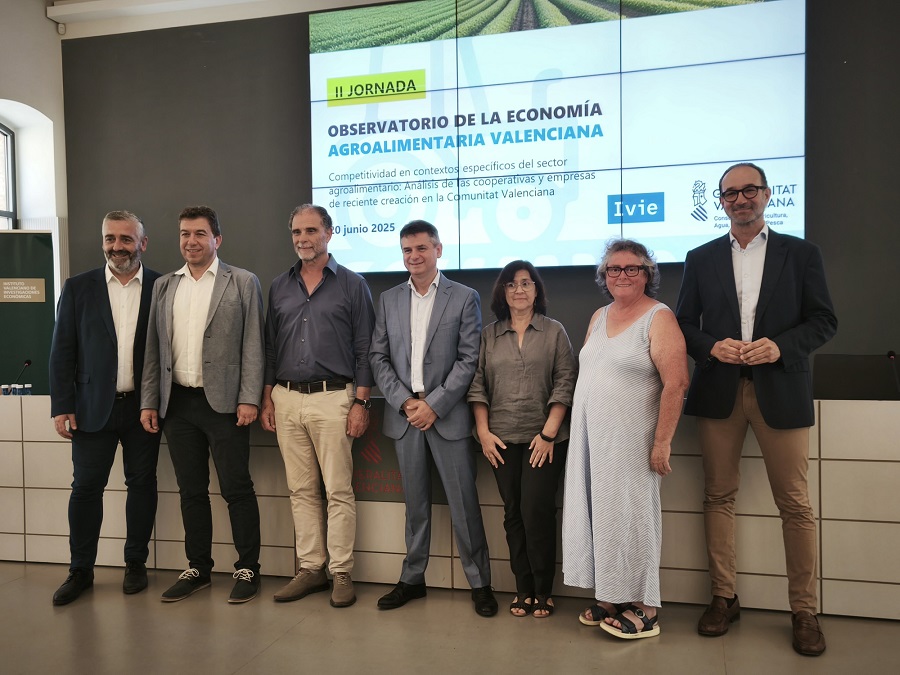
New Agri-Food Companies in the Valencian Region Double the Sector’s Growth Rate but Struggle with Profitability
The Ivie and the Regional Ministry of Agriculture, Water, Livestock, and Fisheries present two new reports from the Observatory of the Agri-Food Economy of Valencia, focusing on newly established companies and cooperatives
Valencia, June 20, 2025. In the Valencian Region, 696 new agri-food companies were created in 2023, representing 8.8% of all new agri-food businesses in Spain. By sectors, around 65% of these companies operate in the commercial sector, compared to 55% in Spain. As for the primary sector, it accounts for over 20% of new Valencian companies, while the industrial sector makes up the remaining 10–15%.
These newly established Valencian agri-food companies stand out for their dynamism and rapid sales growth, although they show lower profitability and productivity than the sector average, according to findings presented at the 2nd Conference of the Observatory of the Agri-Food Economy of Valencia. The event showcased two new reports developed through this initiative, promoted by the Regional Ministry of Agriculture, Water, Livestock, and Fisheries and the Ivie.
The conference was opened by Ernesto Fernández, Director General of Industry and Agri-food Chain, and Vicente Tejedo, Regional Secretary of Agriculture, Water, Livestock, and Fisheries.
Alejandro Escribá, Ivie researcher, presented the report Creación de empresas en el sector agroalimentario valenciano: características económico-financieras (Creation of companies in the Valencian agri-food sector: economic and financial characteristics). Between 2017 and 2023, the number of new agri-food companies in the region ranged from 630 to 801 annually, peaking in 2021.
The report highlights that these companies’ sales growth is twice the average for the sector in the region. In 2022, their turnover increased by 32%, compared to 15% for new companies nationwide. Notably, new industrial companies in the Valencian Region saw an 84% increase in sales.
However, despite this dynamism, new Valencian agri-food companies show reduced levels of profitability and productivity. Specifically, the profitability (profit per unit invested, calculated using operating income over total assets) of these companies stood at 2.9% in 2022, well below the 6.3% figure for all Valencian agri-food companies. In terms of labor productivity, new companies stand at €33,900 per employee, €17,700 less than the total for agri-food companies in the Valencian Community.
In addition, newly created companies have high levels of debt (69.4% compared to 44.8% for the sector as a whole in the region) and negative financial results, reflecting a fragile structure. In other words, the business climate is favorable for the creation and expansion of new companies, but significant challenges remain for their consolidation.
The second report presented at the conference focused on the economic and financial characteristics of companies in the Valencian agri-food sector: cooperative vs. non-cooperative companies. In this case, the main conclusions were explained by Ivie researcher Vicente Safón, who pointed out significant weaknesses in cooperatives compared to the agri-food sector average. Firstly, the cooperative sector is less dynamic, as new cooperatives (companies between 0 and 5 years old) only accounted for 2.5% of agri-food companies in the Valencian Community in 2022, compared to 9.2% for new non-cooperatives.
Furthermore, only 72.5% of Valencian agri-food cooperatives made a profit in 2022, compared to an average of 85.1% for the sector and 83.1% for Spanish cooperatives. Although there are no major differences in this indicator within the Valencian cooperative sector, the industry recorded the lowest percentage, with 70% of companies reporting positive results, compared to 73.7% in the case of marketing cooperatives.
Nor do they perform well in terms of profitability, which stands at 3.9% in 2022, far below the figure recorded by non-cooperative companies in Valencia (6.2%), although above the 3.3% average for Spanish cooperatives. Likewise, they show a productivity ratio, measured by the value added per full-time equivalent employee, of €40,000 per employee, €11,200 lower than that obtained by non-cooperative companies in Valencia. In this regard, the primary sector faces the worst figures, with productivity per employee of €35,400, while the best figure is that of industry (€50,300).
The report also highlights the limited number of large cooperatives in the region, which are crucial for driving economic growth. Although there are strong players like Anecoop and Consum, the number of such firms is lower than expected given the size of the Valencian economy.
Following the report presentations, the conference hosted a panel discussion on the competitiveness challenges faced by cooperatives and newly established companies. Participants included: Josefina Cervera, Quality and Field Technical Director at Rural Sant Vicent Ferrer de Benaguasil Coop. V, Carlos Gil, Member of Parliament for Valencia and Associate Professor at the Universitat Politècnica de València (UPV), Carlos Ledó, Founder and CEO of Veganic, and Mari Carmen Traver, Financial Director (ECOFIN) at Anecoop, S.Coop.


